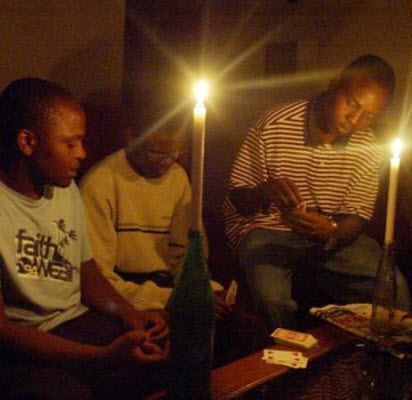There are no products in your shopping cart.
| 0 Items | £0.00 |

 HUMAN rights group the Socio-Economic Rights and Accountability Project (Serap) has attributed Nigeria's inability to address her chronic power shortage problem to constant changing of government policy leading to the loss of N11trn ($30bn).
HUMAN rights group the Socio-Economic Rights and Accountability Project (Serap) has attributed Nigeria's inability to address her chronic power shortage problem to constant changing of government policy leading to the loss of N11trn ($30bn).
Since Nigeria returned to democratic rule in 1999, successive governments have tried to address the power supply problem but the problem has so far defied solution. Presidents Olusegun Obasanjo, Umaru Yar'Adua and Goodluck Jonathan all tried to invest in infrastructure but in doing so all scrapped their predecessors' policies, which led to a lot of wastage.
According to a recent Serap report, over N11tn had been pumped into the power sector since 1999 without any result to show for it. In the 65-page report launched in Lagos, Serap concluded that the funds were squandered under the administrations of former presidents Olusegun Obasanjo, Umar Yar’Adua and Goodluck Jonathan.
Titled From darkness to darkness: How Nigerians are paying the price for corruption in the electricity sector, the Serap report concluded that the perennial poor power supply in the country was proof of corruption in the sector. It called for the probe and prosecution of certain principal actors in the power sector, including a former governor of Cross River State Liyel Imoke, and Professor Chinedu Nebo, for their alleged roles in the power sector scam.
"The Obasanjo’s administration spent $10bn on Nipp with no results in terms of increase in power generation as $13.278,937,409.94 was expended on the power sector in eight years while unfunded commitments amounted to $12bn. The federal government then budgeted a whopping N16bn for the various reforms under Liyel Imoke between 2003 and 2007, which went down the drain as it failed to generate the needed amount of electricity or meet the set goals,” Serap added.
Presenting the report to journalists on Wednesday on behalf of Serap, an associate professor of Energy/Electricity Law at the University of Lagos, Yemi Oke, said: “The country has lost more megawatts in the post-privatisation era due to corruption, impunity, among other social challenges as reflected in the report.
“The much-publicised power sector reforms in Nigeria, under the Electric Power Sector Reform Act of 2005, have yet to yield desired and anticipated fruits largely due to corruption and impunity of perpetrators, regulatory lapses and policy inconsistencies. Ordinary Nigerians continue to pay the price for corruption in the electricity sector–staying in darkness, but still made to pay crazy electricity bills.”
At the event, human rights lawyer, Femi Falana commended Serap for the project, vowing to ride upon the recommendations in the report to institute appropriate legal actions against the government. Acting Economic and Financial Crimes Commission chairman, Ibrahim Magu, was represented at the occasion by its director of public affairs, Osita Nwajah, who promised that the anti-graft agency would look into the recommendations contained in the report.